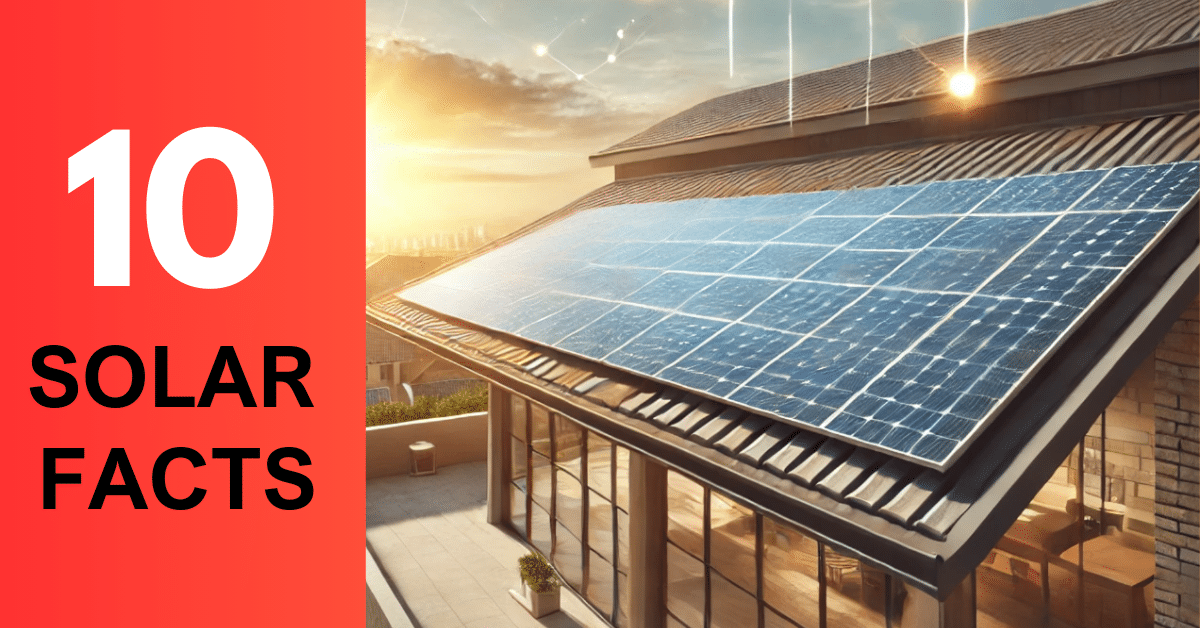10 Facts to Know Before Going Solar: Expert Guide by Mercury Direct
Are you considering solar power? It’s a smart choice for sustainable energy and savings on electricity bills. But going solar involves more than just installing panels. At Mercury Direct, we believe in empowering our customers with the knowledge they need to make informed decisions. Here are the 10 most important facts to know before going solar in Nigeria.
1. Energy Storage is Essential for Reliable Solar Power
One of the top facts to know before going solar is that solar panels don’t store energy. They only produce power when there’s sunlight. For continuous power, especially at night or during cloudy days, an efficient battery storage system is crucial. High-quality batteries ensure that the energy your panels produce is available when you need it.
2. Solar Panel Orientation and Positioning Matter
Did you know that solar panel positioning can significantly impact performance? In Nigeria, for maximum energy output, panels should face true south to capture the most sunlight throughout the day. A professional installer can assess your property and recommend the best orientation and angle, ensuring your system operates at peak efficiency.
3. Solar Panels Have a Gradual Decline in Efficiency
While solar panels are built to last, they do experience a slight degradation over time, typically around 0.5% to 1% per year. By 25 years, panels may still operate at 75-85% of their original capacity. Knowing this fact before going solar helps set realistic expectations and underscores the value of investing in high-quality panels with strong warranties.
4. Energy Efficiency Should Come First
To maximize the benefits of your solar system, start by reducing your home’s energy consumption. Simple upgrades like insulation, LED lighting, and energy-efficient appliances lower overall energy usage, making your solar investment more impactful.
5. Roof Suitability is Key to Solar Success
Not every roof is ideal for solar panels. Key factors like roof condition, size, angle, and orientation play significant roles in the feasibility of a solar installation. A structural assessment may be necessary to ensure your roof can support the weight of the panels and deliver optimal energy production.
6. Invest in High-Quality Solar Panels
One of the most important facts to know before going solar is that panel quality affects both efficiency and longevity. High-quality panels from reputable brands offer better performance, durability, and warranties. Investing in superior solar panels reduces maintenance needs and extends the life of your system, maximizing your return on investment.
7. Proper System Sizing is Crucial for Performance
Many people make the mistake of not having enough panels to meet their energy needs. Without proper sizing, your solar system may struggle to power your load and charge the batteries efficiently. Accurate sizing takes into account your household’s energy consumption and battery capacity. Consulting a professional ensures that your solar system is properly scaled to meet your requirements. For more information on how many solar panels, batteries, and inverters you really need, check out our detailed guide here.
8. Minimal Maintenance, But Consistent Upkeep
Solar panels require little maintenance, but occasional cleaning and inspections help keep them at peak performance. Dust, debris, or pollution can reduce efficiency over time, so regular upkeep is a simple way to maintain system output and maximize savings.
9. Understand Your Solar Warranty Options
Solar panels generally come with two types of warranties: a performance warranty and a product warranty. The performance warranty ensures a certain level of energy production over time, while the product warranty covers manufacturing defects. Understanding these warranty terms before going solar helps protect your investment and ensures peace of mind.
10. Local Regulations and Permits Matter in Nigeria
In Nigeria, understanding local regulations and permits is crucial for a smooth solar installation. While government incentives for solar energy are limited, knowing the requirements ensures compliance and prevents potential legal issues. Additionally, some financial institutions offer green energy loans or financing options, making solar more affordable.
Conclusion: Make the Smart Solar Choice with Mercury Direct
Going solar is a significant investment, but understanding these essential facts to know before going solar will set you up for success. At Mercury Direct, we’re here to guide you in making the right choices for your energy needs.
Whether you’re selecting high-quality panels, determining the best orientation, or ensuring proper system sizing, Mercury Direct provides expert advice and top-tier solar solutions for homes and businesses across Nigeria. Contact us today for a consultation or explore our range of high-efficiency solar products tailored to Nigeria’s unique energy needs.
Discover reliable solar solutions in Nigeria. Learn more at Mercury Direct.

